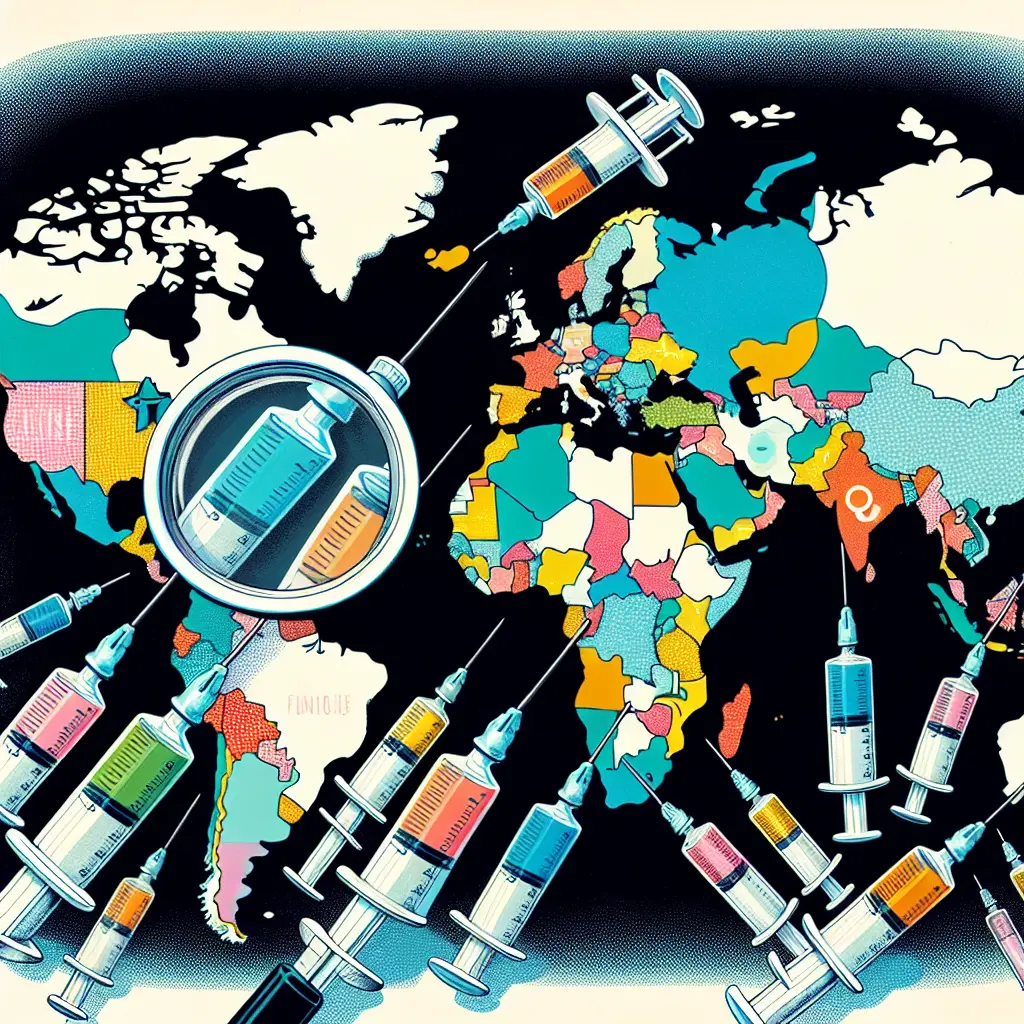
In the wake of the COVID-19 pandemic, the implementation of vaccine mandate policies has become a global phenomenon, sparking both support and controversy across different nations. This comparative analysis aims to explore the varied approaches to vaccine mandates, their effectiveness, and the resultant public and political reactions worldwide. This exploration is particularly timely, given the current debates and legal challenges surrounding these mandates.
Global Overview of Vaccine Mandate Policies
Vaccine mandate policies, which require individuals to be vaccinated against certain diseases to access services or employment, differ significantly from country to country. Some nations have implemented strict mandates, while others have opted for more lenient approaches. These policies have been influenced by public health data, political ideologies, and cultural attitudes towards vaccination.
For instance, in the United States, vaccine mandates have been a polarizing issue. Recently, during his first campaign rally with Vance, former President Donald Trump remarked he took 'a bullet for democracy,' highlighting the political charge the vaccine debate holds in American politics (source). Meanwhile, J.D. Vance, a proponent of stringent vaccine policies, has controversially suggested that nurses should be dismissed if they refuse the COVID-19 vaccine (source).
Comparative Analysis of Vaccine Mandates
Countries like Australia and New Zealand have shown high compliance with vaccine mandates, often credited to their public health communication strategies. However, Dominic Perrottet, an Australian politician, recently declared pandemic vaccine mandates as 'wrong' in his valedictory speech, showcasing the shift in public sentiment as the immediate threat of the pandemic wanes (source).
In contrast, European countries present a mixed picture. France and Italy initially enforced strict mandates but have gradually relaxed them as vaccination rates increased and public opposition grew. This highlights an essential aspect of vaccine mandate policies: adaptability in response to changing epidemiological landscapes and public opinion.
Effectiveness and Outcomes of Vaccine Mandates
A recent study highlighted by various health journals showed that mask and vaccine mandates had significantly reduced the spread of COVID-19 and saved lives (source). However, a controversial study claimed that excess mortality was more closely linked to government interventions rather than the virus itself (source). These conflicting reports underline the complexity of assessing the direct impact of vaccine mandates on public health.
Regulations and International Health Policy Comparison
The regulatory framework surrounding vaccine mandates also varies significantly. In Canada, for example, mandates are enforced at provincial levels with federal guidance, allowing for tailored responses that consider local infection rates and healthcare capacities. This decentralized approach can be contrasted with countries like Brazil, where federal mandates have faced significant resistance from regional governments and the public (source).
Cultural Responses and Legal Challenges
The cultural reception of vaccine mandates has also been varied. In Japan, where there is a strong cultural emphasis on collective responsibility, there has been high compliance with minimal opposition. Conversely, in the U.S., mandates have led to widespread protests and legal challenges, reflecting a more individualistic ethos and skepticism of governmental authority (source).
Legal challenges are a significant aspect of vaccine mandates. In the U.S., several states have passed laws banning vaccine passports or mandates, arguing that they infringe on personal freedoms. These legal battles highlight the tension between public health objectives and individual rights (source).
Recent Controversies and Media Influence
Media coverage and public figures play a crucial role in shaping attitudes towards vaccine mandates. The recent lawsuit against Netflix by its former Risk Management Director over alleged sexual harassment and retaliation related to vaccine mandates underscores the complex interplay between corporate policy and employee rights (source).
Furthermore, the bizarre incident involving RFK Jr., who likened vaccine mandates to Nazi practices during a speech made while addressing a crowd from a stage adorned with bear imagery, has sparked intense media backlash and public discourse about the appropriateness of such comparisons (source).
Conclusion
The comparative analysis of global vaccine mandates reveals a spectrum of strategies, effectiveness levels, and societal responses. From strict enforcement in some countries to significant opposition in others, these policies continue to shape our world in profound ways. As countries navigate the post-pandemic era, the lessons learned from these diverse approaches will undoubtedly influence future international health policies.
In conclusion, while public health interventions are critical in managing health crises, their implementation must be sensitive to cultural, legal, and ethical considerations. As we move forward, fostering dialogue and understanding across different perspectives will be key to developing more effective and acceptable public health strategies.
Thank you for joining me on this exploration of a pivotal issue in global health policy.
Gregory Stanton